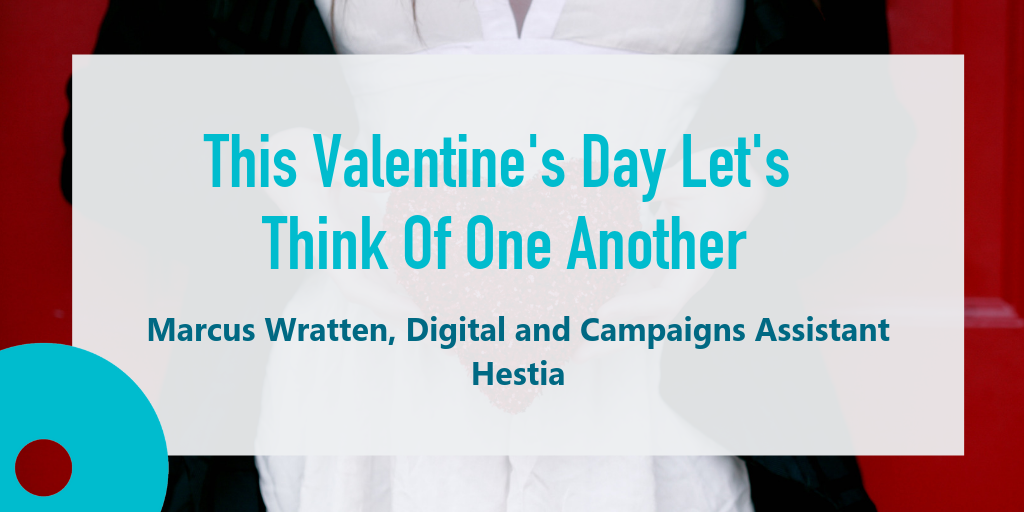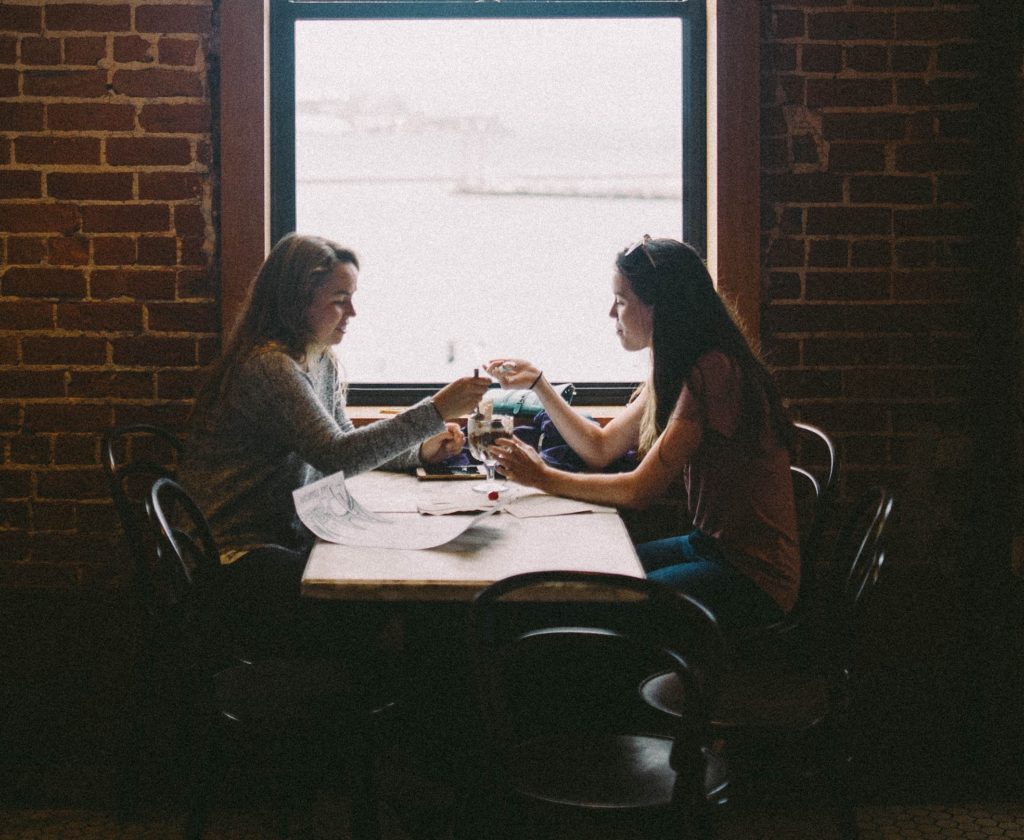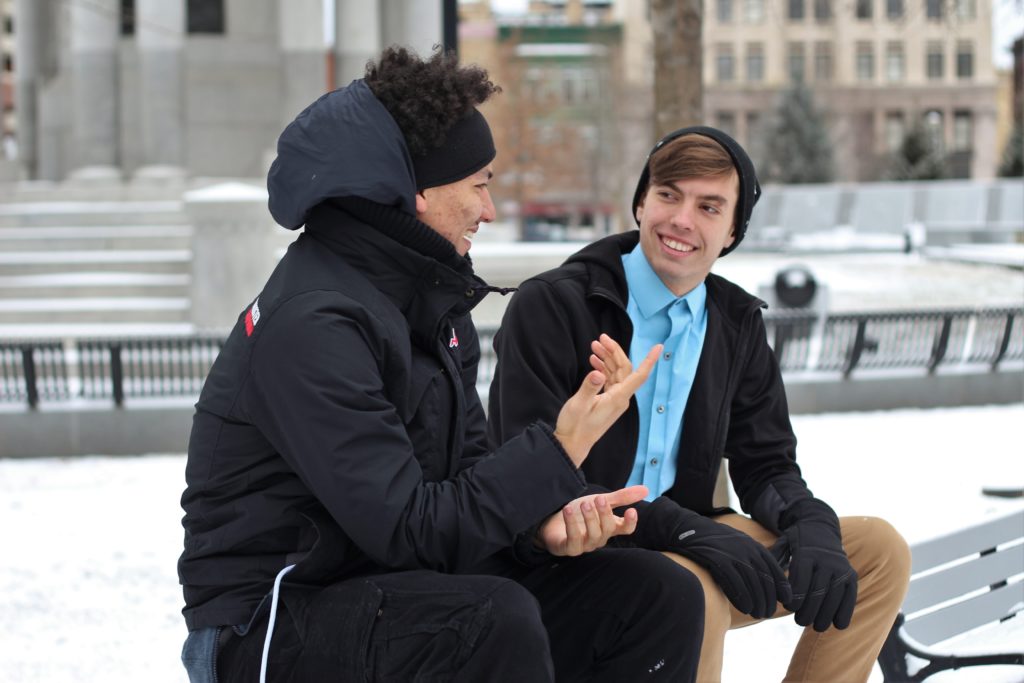Written by Marcus Wratten, Digital and Campaigns Assistant at Hestia.
Every friendship group is the same. You’ve got your loved up friends, your happily single friends and your not-so-happily-single friends. You’ve got those who are just out of a relationship, those who are just getting into one. Those who have had good, positive relationships and caring partners, and those who have not.
On Valentine’s Day, it’s all about the loved up friends. Restaurant reservations have been made. Cards have been panic-purchased, scrawled in last minute. Chocolates, teddies, roses – all of that icky-sticky stuff that makes our knees weak and hearts flutter.
For some, however, this isn’t the case. Valentine’s Day isn’t about celebrating or romanticising. In fact, for the 1 in 4 women and 1 in 6 men who experience domestic abuse in their lifetime, Valentine’s Day can be one of the toughest and most triggering days of the year.
Every friendship group is the same. Chances are, we all know someone affected by domestic abuse. They might be recovering after recently leaving an abusive relationship, or they might still be in one.
A survey by Hestia indicates that 1 in 3 people in the UK wouldn’t know how to support a friend they suspected was experiencing domestic abuse.
If you’re one of the loved up friends on your way to a fancy bar or cuddled up on the sofa, keep your friends in mind.
If you think someone you love is experiencing domestic abuse, know that you can help and make a difference.
Start a conversation
Don’t expect someone to open up straight away. It’s like asking if someone’s feeling down. We’re programmed to say ‘I’m fine’ even when we’re feeling low, and it might take someone asking twice for us to open up. Be patient, be non-judgemental, be open.
Don’t be a bystander. Sort out a coffee date or dinner date. Go for a walk with them – asking someone how they’re doing when they’re not looking you in the eye can make it easier for them to open up.
Listen without judgement
Leaving an abusive relationship is hard. There’s a large number of barriers that prevent someone from leaving, all that can seem insurmountable to the individual affected. Your role as a great friend isn’t to tell them to leave, or to try and fix things, or to pretend you know what they’re feeling or what’s best.
Your role is to listen, and listen actively. Your role is to believe them, objectively. You can then signpost them to further support via Bright Sky.
Download the Bright Sky app
The free Bright Sky app, available to download from your app store, provides a UK-wide directory of specialist domestic abuse support services. In addition, the app acts as a source of advice for those experiencing domestic abuse and those concerned about someone they know, with a questionnaire helping users to assess the safety of a relationship.
Have the app on your phone at all times. You never know when you or a friend might need it.
350 people installed the Bright Sky app on their phone last February, three months before the app officially launched. Domestic abuse doesn’t stop just because Sainsbury’s is stocking big red cards.
If someone you love has recently come out of abusive relationship, your support can still mean the world.
On Valentine’s Day, you would be forgiven for thinking of nothing but your partner and how to make the most of the special day together.
If you know a friend is recovering after experiencing domestic abuse, reach out. Perhaps it is their first Valentine’s Day single, but it doesn’t have to be their first Valentine’s Day alone.
Drop them a message
You’re there for them, so let them know. A simple ‘hey, how are you doing?’ has the power to change someone’s self-deprecative way of thinking.
Don’t pressure them
There are plenty of fish in the sea, we all know that. Sometimes, we really don’t want fish. Sometimes, we do want fish, but just not right now. People can decide when they want fish.
There’s no time limit on when someone should start dating again or commit to a relationship, especially after experiencing domestic abuse. Don’t pressure them to move on or start seeing new people.
Let them feel how they feel
Experiencing domestic abuse is extremely traumatic. Your loved one’s emotions might seem irregular. They may even seem upset or jealous that you are content in your relationship. Your job isn’t to tell them what to feel – they are allowed to feel anything and everything. Your job is to listen to their thoughts, and encourage them to express their emotions.
Domestic abuse is incredibly common. Acknowledging society’s role in ending it is one thing, recognising our own role in ending it is another. This Valentine’s Day, put some love aside for a friend, and know how to support them if they are, ever have or do experience domestic abuse in future.
There’s no excuse for abuse, and it domestic abuse doesn’t simply stop for Valentine’s Day.





